Visions of the Desert
Whether you travel the shifting sands on foot, by 4x4 or atop a ‘ship of the desert’, otherworldly vistas, warm hospitality and unique culinary experiences await. Emma Ventura scans the horizon
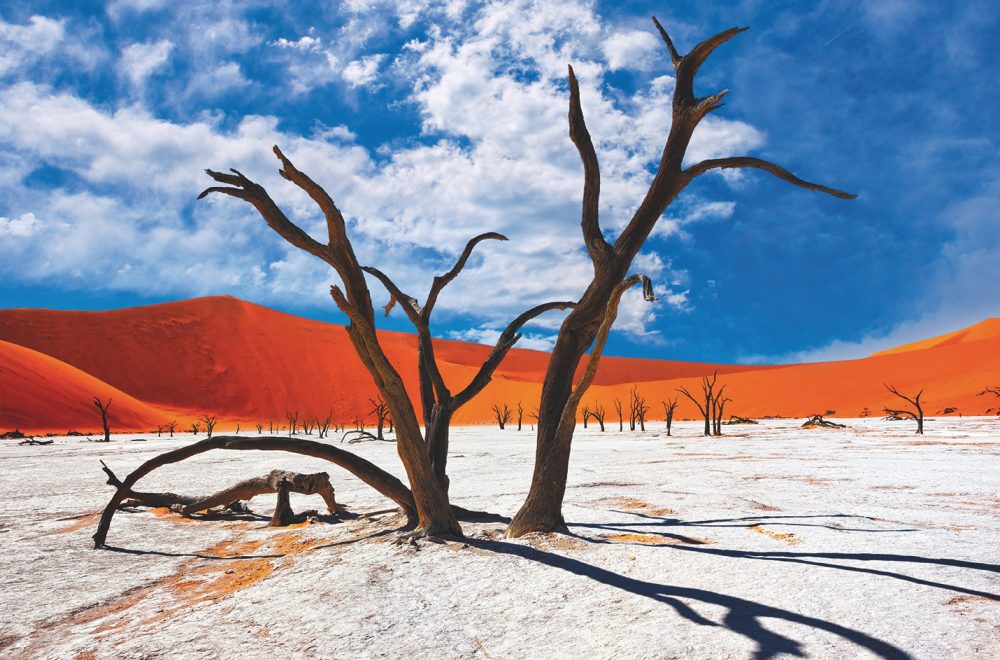
Whether you travel the shifting sands on foot, by 4x4 or atop a ‘ship of the desert’, otherworldly vistas, warm hospitality and unique culinary experiences await. Emma Ventura scans the horizon
BEST FOR NOMADIC SOULS
If you like your outdoor spaces as wide as the sky, the Gobi will set
your spirit free. Famous for regularly throwing up dinosaur discoveries
– like the new oviraptorosaur fossil announced last February – the
world’s fifth largest desert has the power to surprise. From the 300m
dunes of the Khongoryn Els desert, to the ice-carved green canyons of Yoln Alm, and the towering limestone geological formations of
Khermen Sav, the Gobi is more than just a hardscrabble dusty flatness. Unless you’re feeling particularly intrepid, you’ll want to
explore the region with an operator such as Panoramic Journeys
panoramicjourneys.com which provides bespoke and small-group
tours covering star-gazing, camel treks and stays with nomadic
families. Goyo Travel goyotravel.com also offers group, private and
special-interest itineraries, taking in Gobi must-dos such as the
famous Flaming Cliffs flamingcliffs.com where American explorer
Roy Chapman Andrews first discovered dinosaur eggs in the 1920s.
The benchmark accommodation is the Three Camel Lodge. Built with
the advice of local herdsmen, it comprises 40 luxurious wooden gers
covered with canvas and felt, each housing hand-painted furniture
and wood-burning stoves. Take a tour with parent company Nomadic
Expeditions nomadicexpeditions.com then spend the evening with
off-duty paleontologists in the lodge’s Dino House and Bar.
'Gobi Desert must-dos include the famous Flaming Cliffs, where American explorer Roy Chapman Andrews first discovered dinosaur eggs in the 1920s.'
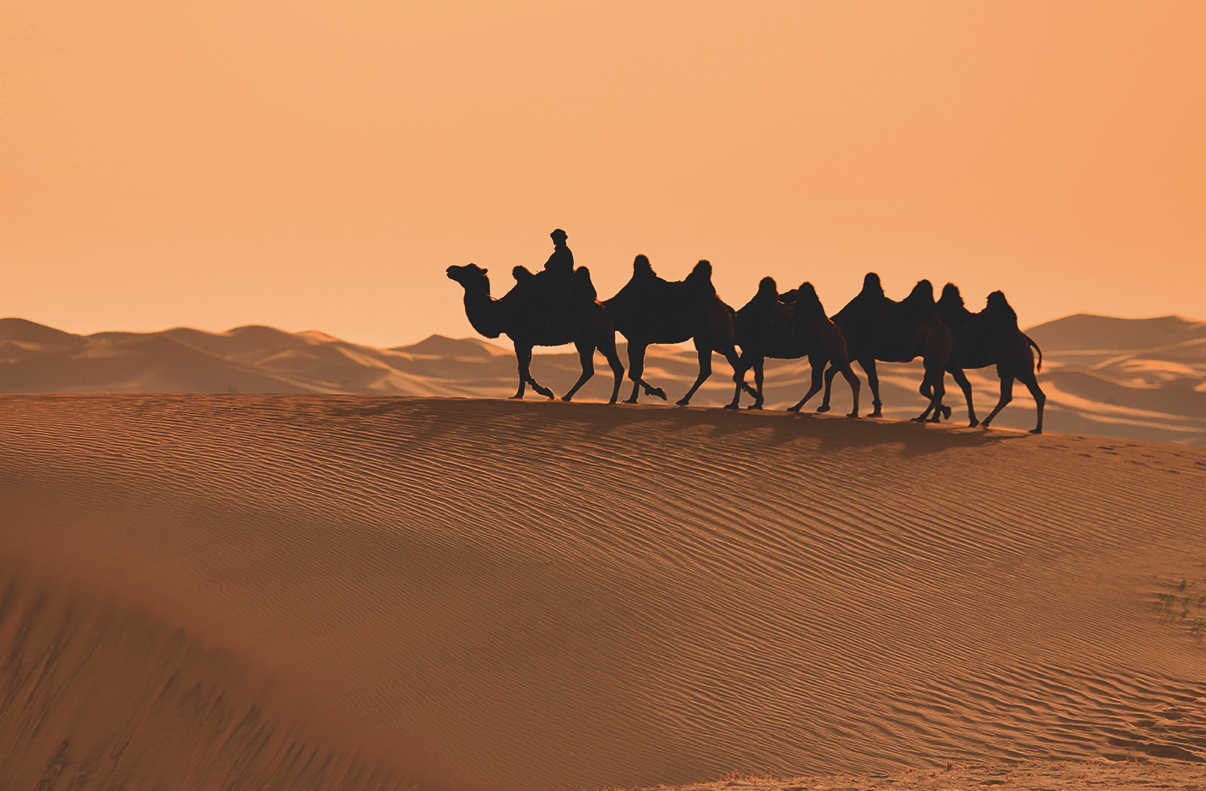
Hunnu Air hunnuair.com flies twice a week from
Ulaanbaatar to Dalanzadgad, the jumping-off point for the Gobi
Gurvansaikhan National Park, a 7-8 hour drive from the Mongolian
capital. Stay at Three Camel Lodge threecamellodge.com for £972pp per package (open May - October).
BEST FOR SPLENDID ISOLATION
Namib means ‘vast place’. A clear sign that if you want to experience beautiful desert desolation, Namibia is a choice place to visit. Take time to explore Namib-Naukluft National Park (pictured), home to the breathtaking Deadvlei and Sossusvlei, before heading to the Skeleton Coast. It may be remote, deserted and named for death, yet it also holds wildlife riches. Here – where the bones of some 500 ships and countless bleached whale skeletons litter the shore – oryx, ostriches, jackals and elephants unexpectedly roam the strandline, interspersed with colonies of Cape fur seals numbering in their thousands. It’s best accessed by plane from Swakopmund with a local operator such as Wilderness Air. At Shipwreck Lodge, you can stay in comfort in one of their ten solar-powered cabins scattered among the dunes. Each eclectically designed lodge has off-kilter geometry, colour- and textile-rich interiors and some isolation- amplifying views over an area dubbed ‘The Gates of Hell’ by early Portuguese navigators. Or head further inland to Kaokoveld, where Wilderness Safaris’ Hoanib Skeleton Coast Camp offers glamping with eight en-suite tents as well as excursions to meet research teams studying lions and other desert-adapted wildlife.
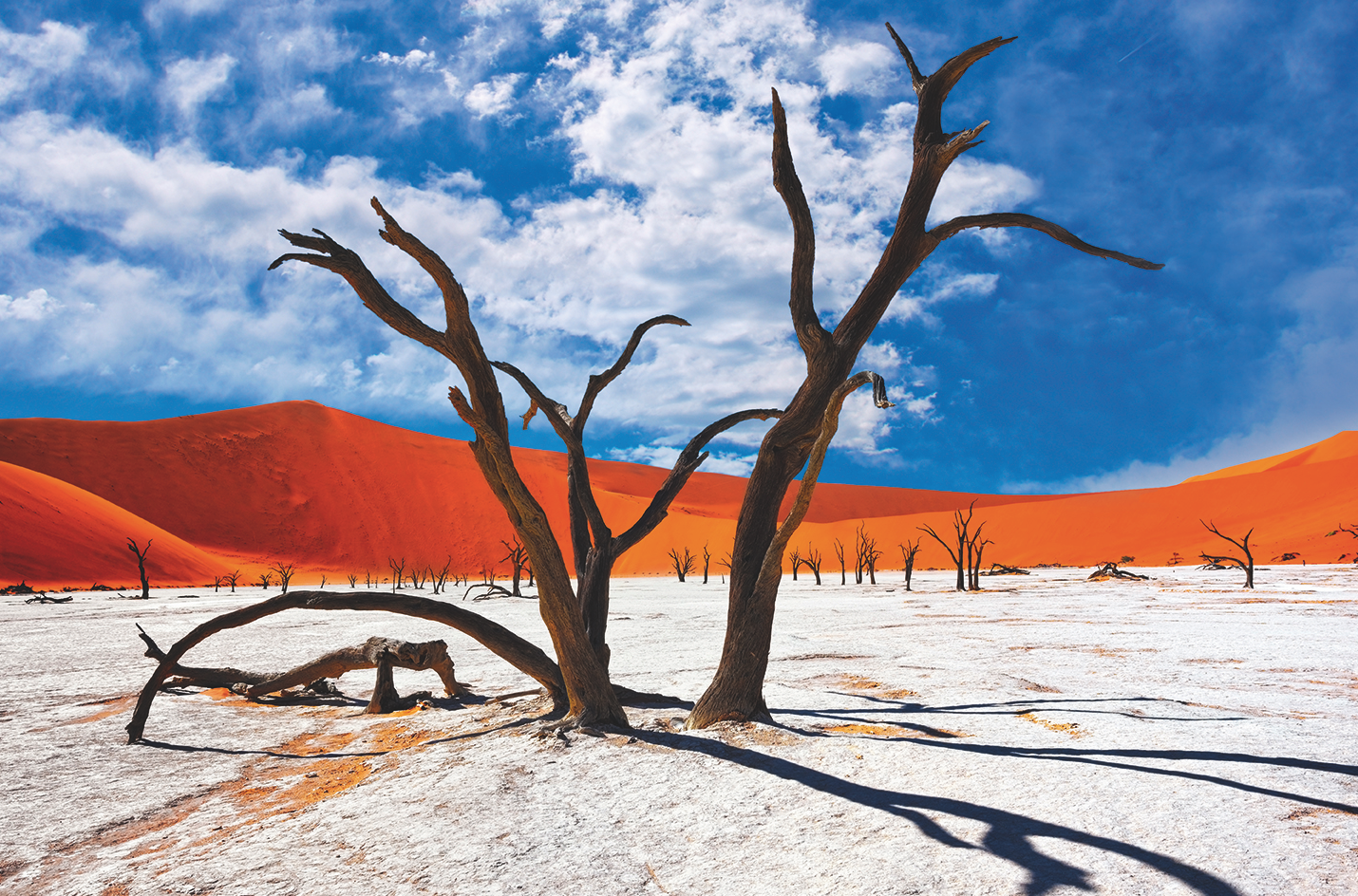
Skeleton Coast Safaris skeletoncoastsafaris.com offers aerial tours and packages from £6,702pp for four days. Otherwise stay at Hoanib Skeleton Coast wilderness-safaris.com from £692pn, or Shipwreck Lodge shipwrecklodge.com.na from £550pn.
BEST FOR OUTBACK SAFARI STYLE
There are deserts and then there’s the Australian outback, eerily beautiful and roamed by humanity for at least 60,000 years. South Australia’s Ikara-Flinders Ranges are an accessible way to experience it, located a two-and-a-quarter hour drive from Port Augusta – a snip of a journey by Aussie standards. Stretching for 430km, the Flinders boast geological features such as Wilpena Pound – a natural, 80 sq km amphitheatre of rock – 600-million-year-old fossil grounds, and iconic fauna, from goannas and emus to quolls and kangaroos. Glamorous Arkaba, an 1850s sheep station turned wildlife conservancy, channels African safari style with aerial, photographic and animal-spotting tours, plus walks with indigenous experts, creekside massages, and excellent food and wine – think Barossa prosciutto and Clare Valley riesling. For a more affordable option, Rawnsley Park offers homestead and holiday units, camping and eco-friendly villas. Alternatively, saddle up with Camel Treks Australia cameltreksaustralia.com.au – which saves animals bound for the abattoir and puts them to use on camping safaris of up to nine days through the panoramic landscape.
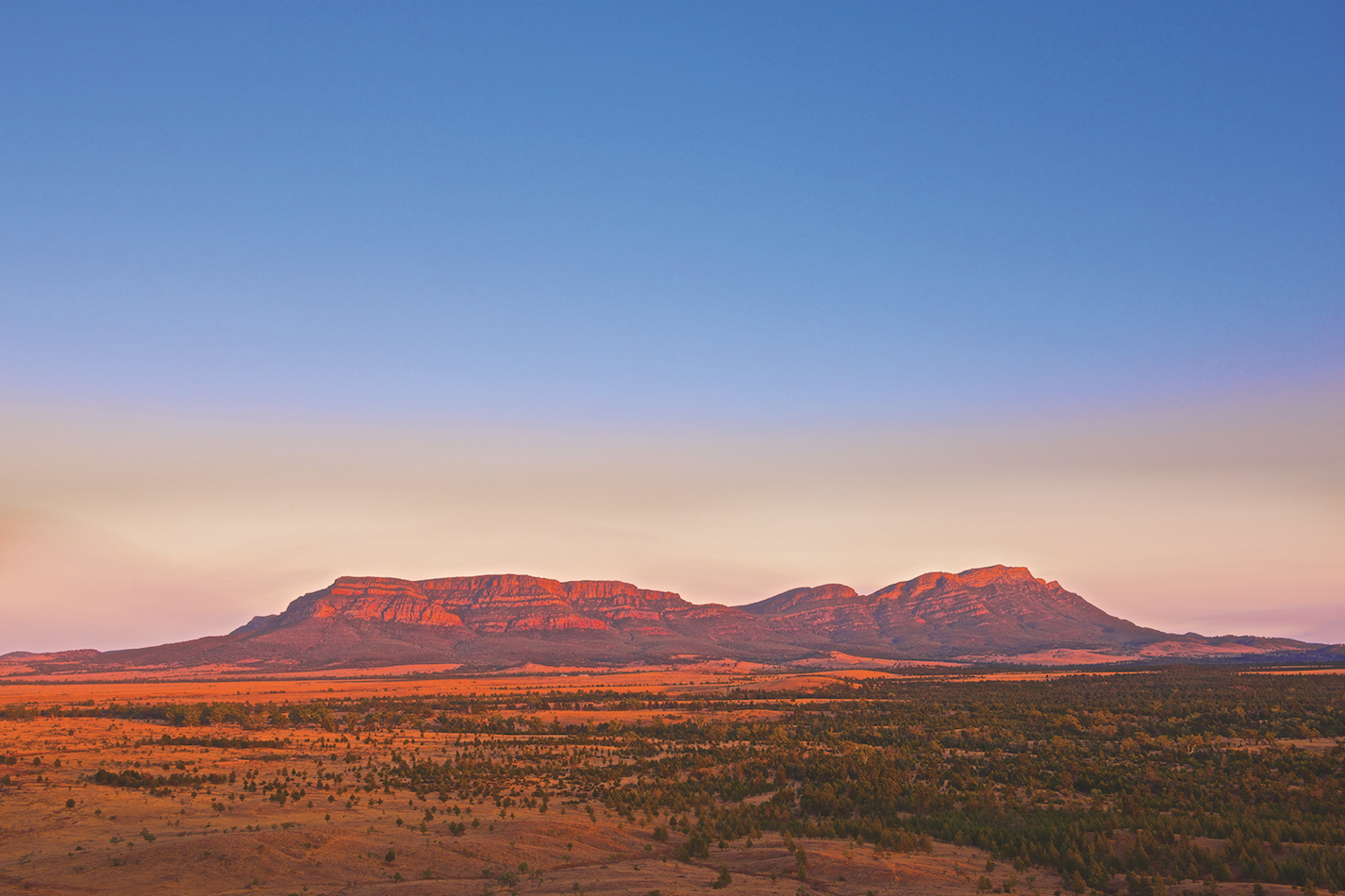
Stay at Arkaba arkabaconservancy.com from £582pn or Rawnsley Park rawnsleypark.com.au from £101pn for a holiday unit or £245pn for an eco villa.
BEST FOR EXTRATERRESTRIAL EXPERIENCES
Driving up into Tenerife’s high country feels otherworldly:
rugged lowlands give way to alpine scenery before you break
through the clouds into a Martian landscape. A Unesco World
Heritage site since 2007, the 190 sq km park is a far cry from teh bling of the island's west-coast hotels. Arid and largely devoide of human habitation, it’s distinguished by surreal rock structures
formed of hardened lava flows from the 3,718m Mount Teide
volcano. Walking trails crisscross the park but the standout
hike leads up the active volcano, achieved with an overnight
stay at Altavista Refuge. Night is when Teide shines – its skies
are among the clearest in Europe – so wrap up warm and gaze
at the constellations. A cushier option is to stay at Parador de Las Cañadas del Teide, which offers simple lodge-style
accommodation and robust dishes such as conejo en salmorejo,
or marinated rabbit. At 2,000m, it’s the only hotel within
the park, with easy access to the volcano cable car and Teide
Observatory, home to the largest solar telescope in Europe.
‘Arid and largely devoid of human habitation, Teide National Park features surreal rock structures formed of hardened lava flows from the 3,718m Mount Teide’
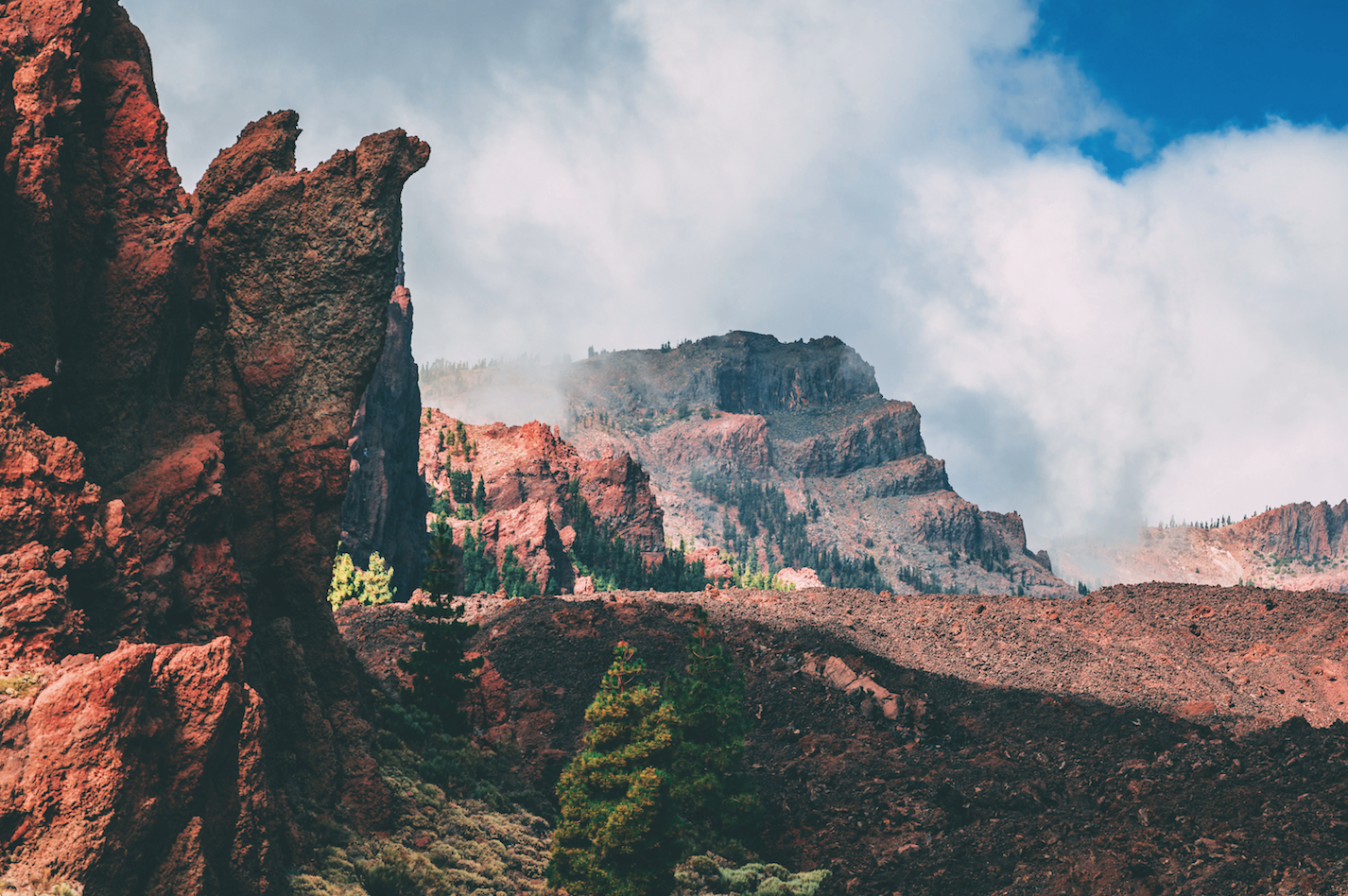
Stay at Parador de Las Cañadas parador.es from £151pn. If you’re climbing the volcano, book a bunk at Altavista Refuge, £19pp, or a combined tour and cable car ride, from £60pp. Tours of Teide Observatory from £19pp. Sunset & Stars tours from £65pp, including dinner. volcanoteide.com
BEST FOR GOLDEN OPPORTUNITIES
It takes some effort to get to Jaisalmer, but a visit to the Golden City – so-called for its sandstone buildings that glow in the sunlight – will earn you 24-carat bragging rights. It also means crossing the splendid dunes of the vast Thar Desert, unexpectedly rich in wildlife. Less journeyed than Jaipur, 560km to the east, the city sits proudly in the western quadrant of Rajasthan, dominated by a fortress dating to the 12th century. Pull up at the palatial Suryagarh Jaisalmer hotel, located on the old Silk Route, a 15-minute drive from town, and you may be tempted to stay put, with experiences here including picnics at desert oases, temple trails, mountain biking and birdwatching trips. The desert is also filled with temples and places rich in tradition and folklore. But neither will you want to miss the city, with its labyrinthine alleyways and ornate havelis – the exuberantly painted mansion houses covered in intricate carvings. If you’re there in February, head to the Sam Sand Dunes, 40km away, where the annual Jaisalmer Desert Festival desertfestivaljaisalmer.com celebrates everyone and everything from puppeteers and folk musicians to camel racing and turban-tying competitions.
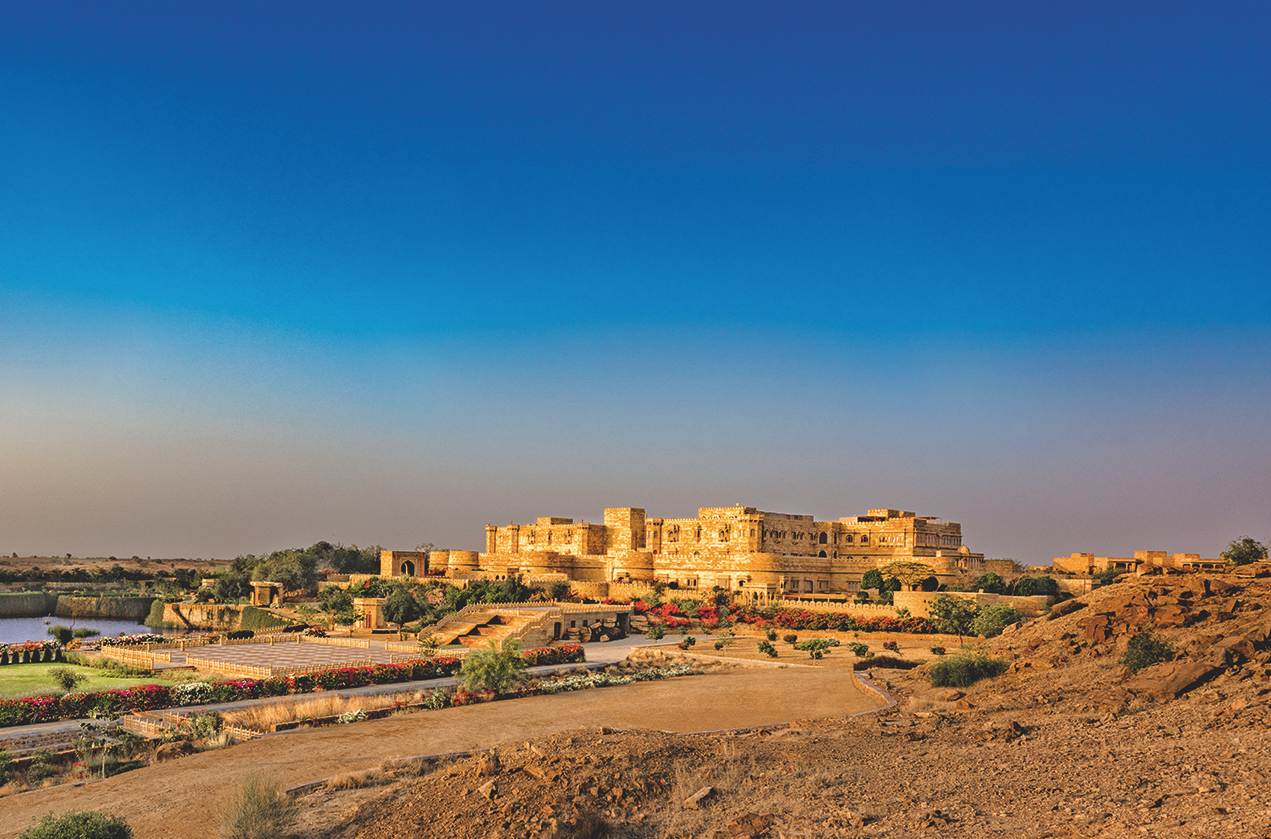
Stay on the old Silk Route at Suryagarh Jaisalmer hotel suryagarh.com from £215pn.
BEST FOR A TASTE OF ADVENTURE
From the shimmering white of the world’s largest salt flats, 3,660m above sea level, six space-age domes signal a new breed of luxury that has landed on Bolivia’s Altiplano. The altitude may be sapping, but the recently opened Kachi Lodge – set on timber decking smack-bang in the middle of the 10,582 sq km Salar de Uyni – has restorative powers, thanks to its plush futuristic pods, artistic vibe and food from former Noma chef Claus Meyer. The Salar flats create some of the most spectacular scenery imaginable – glassy and mirror-like or made up of pristine white hexagons, depending on the light and time of year. To the south, Laguna Colorada is home to serene flocks of flamingos, grazing on an algae-rich lake, while down the road, another hotel, the Palacio de Sal, is built almost entirely of salt. Hundreds of operators of varying standards run tours of the area; your best bet is to book a personalised 4x4 tour, either flying in from La Paz, or driving from the towns of Tupiza or Uyuni. Even better may be to base yourself in the Chilean adventure hub of San Pedro de Atacama – a town of plentiful dining and accommodation options – and head in from across the border.
‘The Salar flats create some of the most spectacular scenery imaginable – glassy and mirror-like or made up
of pristine white hexagons, depending on the light and time of year’
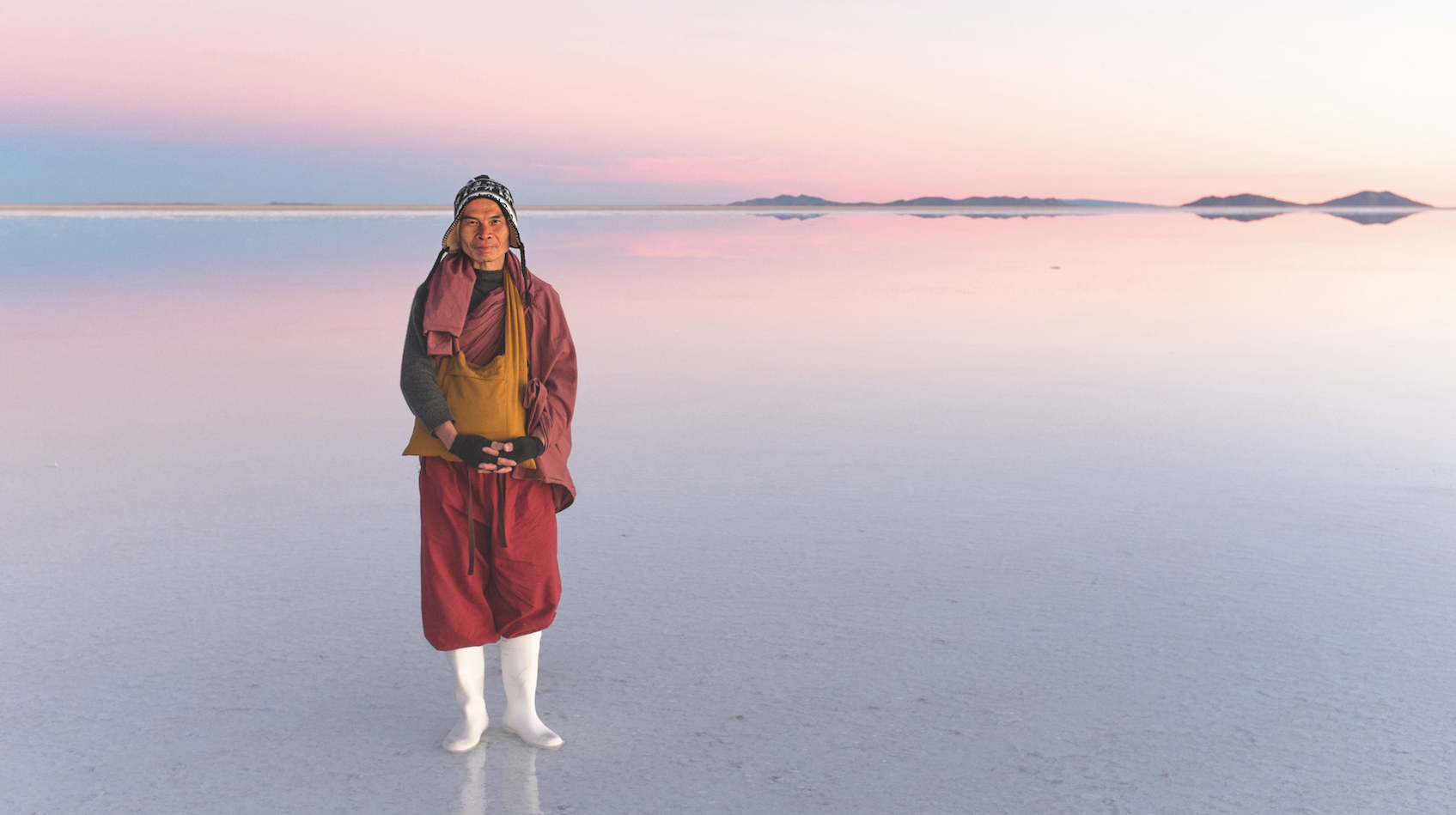
Stay at Kachi Lodge kachilodge.com from £1,835pn, and Hotel Palacio de Sal palaciodesal.com.bo from £118pn.
BEST FOR FEEDING YOUR INNER ARCHAEOLOGIST
Forget the Indiana Jones clichés – the ancient Nabatean capital of Petra, located in Jordan’s southwestern desert, is simply awe-inspiring. Along with the town of Wadi Musa, which has sprung up around it, it’s located a three-hour bus ride or drive from the capital, Amman. Dating from the 4th century BC, its tombs and towering rose-gold sandstone facades have rightly earnt it status as one of the New Seven Wonders of the World. The only downside is the heavy tourist crowd, best avoided with super-early starts or perhaps on a night tour visitpetra.jo when the site is set aglow with 1,500 candles. Petra’s most iconic building is The Treasury, made famous in The Last Crusade, but if you take on the 800 rock-cut steps leading up into the hills, you’ll be rewarded with the less touristy and even bigger Monastery, 50m wide
and 45m high. Plus, along the way you’ll find all manner of sites across this sprawling complex. Alternatively, there’s Little Petra, or Siq al-Barid, located 5km north of the main site and bypassed by many. It is an exquisite little site, built around the same time as Petra, with its three main sections linked by a narrow canyon. The big bonus is that it’s not nearly as visited as the main Petra sites. Jordanians
are renowned for their hospitality and a tour with A Piece of Jordan apieceofjordan.com enables you to fuel your explorations with culinary-based eco experiences that include B&B stays and cooking with local families.
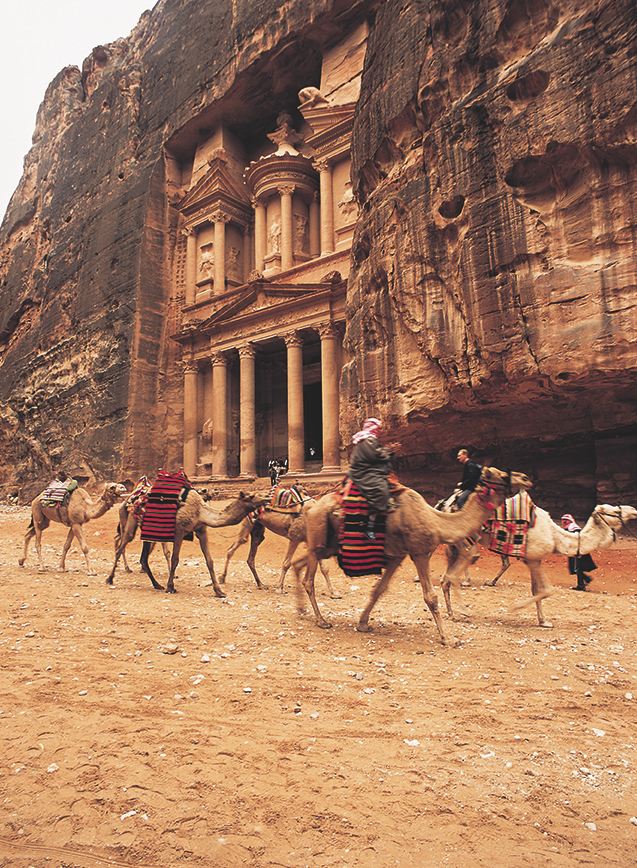
For a unique view over the spectacular
landscape, stay at Bubblelux Hotel Petra petrabubble.com
from £220pn, where 20 pod-style suites come complete with
hot tubs and transparent roofs that maximise guests’ views of the glittering, star-studded desert skies above.
Subscribe and view full print editions online... Subscribe